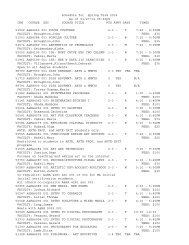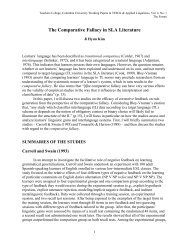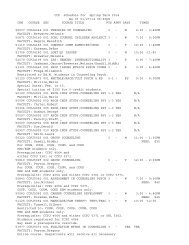4th Grade, Class A Science Lesson Plan November 14, 2000 ...
4th Grade, Class A Science Lesson Plan November 14, 2000 ...
4th Grade, Class A Science Lesson Plan November 14, 2000 ...
You also want an ePaper? Increase the reach of your titles
YUMPU automatically turns print PDFs into web optimized ePapers that Google loves.
Be able to investigate how water heats up, and to notice that the heated water is moving.<br />
Be able to think about the differences between how metal and water heat up.<br />
(3) Relationship of the <strong>Lesson</strong> to the Goal of <strong>Science</strong> Education at the School<br />
<strong>Science</strong> Education Goal:<br />
“Not only to rear students’ minds to autonomously connect with surrounding nature<br />
and to love nature, but also to foster ability to investigate problems in nature<br />
scientifically.”<br />
There are many students who have had the experience of heating up something through<br />
cooking in everyday life. However, I think many of them have not thought out the<br />
relationship between material and temperature. Therefore, the During the first half of this<br />
unit, students learned about the volume change in air, water, and metal that are associated<br />
wit changing temperature, and learned that the changes are different among these three<br />
materials. During the second half of this unit, the students will learn how different<br />
materials heat up differently.<br />
My students have been experiencing many activities that are oriented toward identifying<br />
problems autonomously, establishing hypotheses, and testing them by developing their own<br />
experimental methods. I believe that students can develop problem-solving abilities through<br />
these activities.<br />
Last week, my students studied how metal, that they find in their surroundings, heats up.<br />
In this lesson, the students will investigate objectively how water heats up by thinking out<br />
their own experimental methods. Then they will compare their findings with their findings<br />
with metal. I like to make the most of students’ ideas, and support them, in order for them<br />
to be able to solve the problem on their own.<br />
© <strong>2000</strong>, Greenwich Japanese School & <strong>Lesson</strong> Study Research Group Page 2



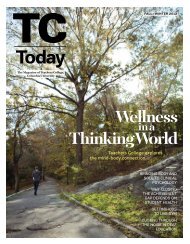
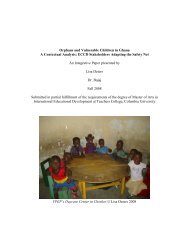
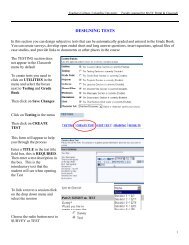
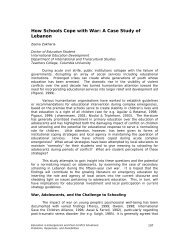

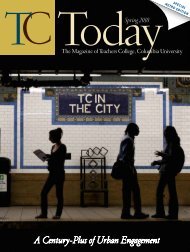
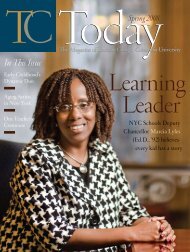
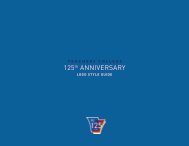

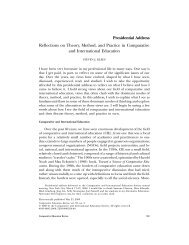
![TC Tod[...].pdf - Teachers College Columbia University](https://img.yumpu.com/27074883/1/190x252/tc-todpdf-teachers-college-columbia-university.jpg?quality=85)
